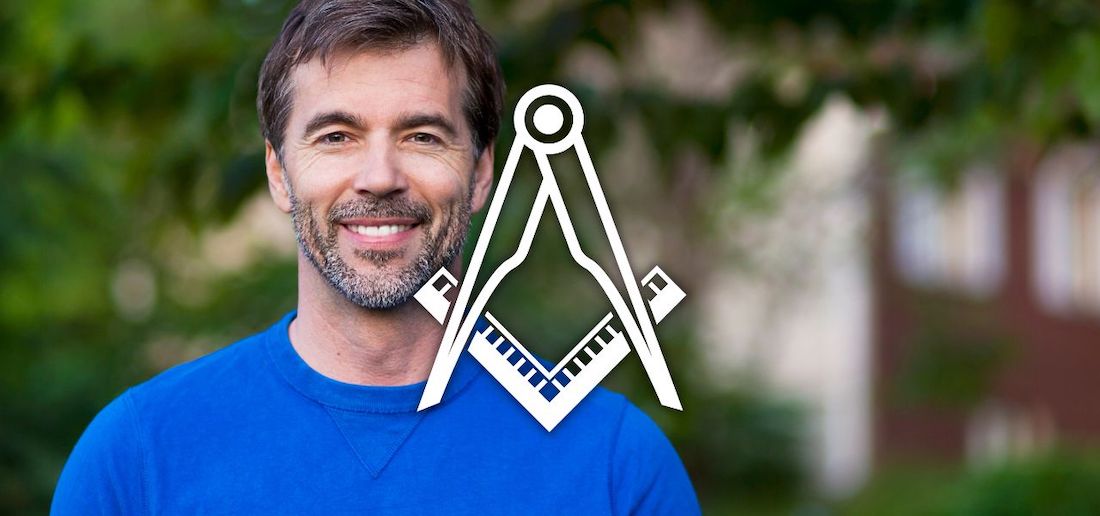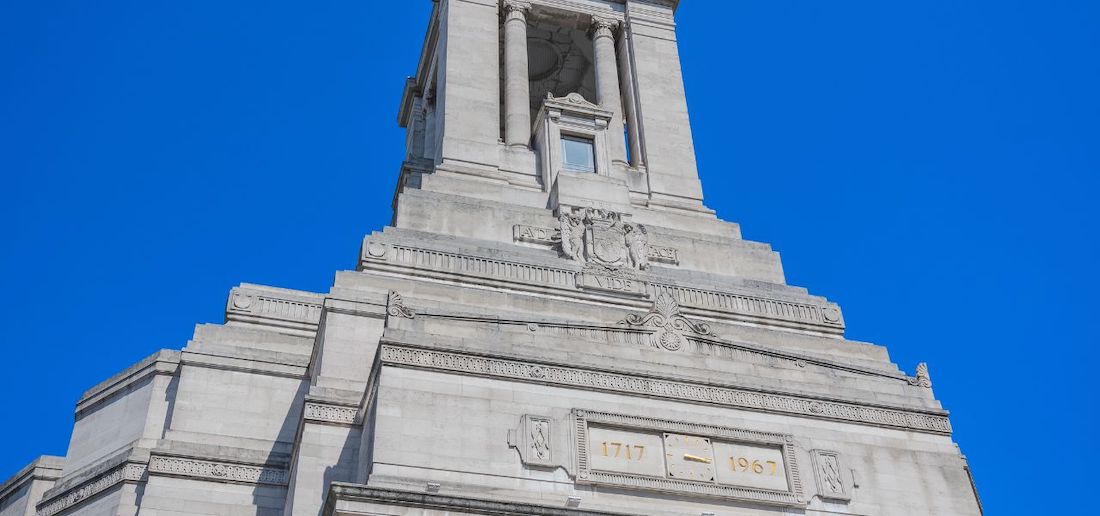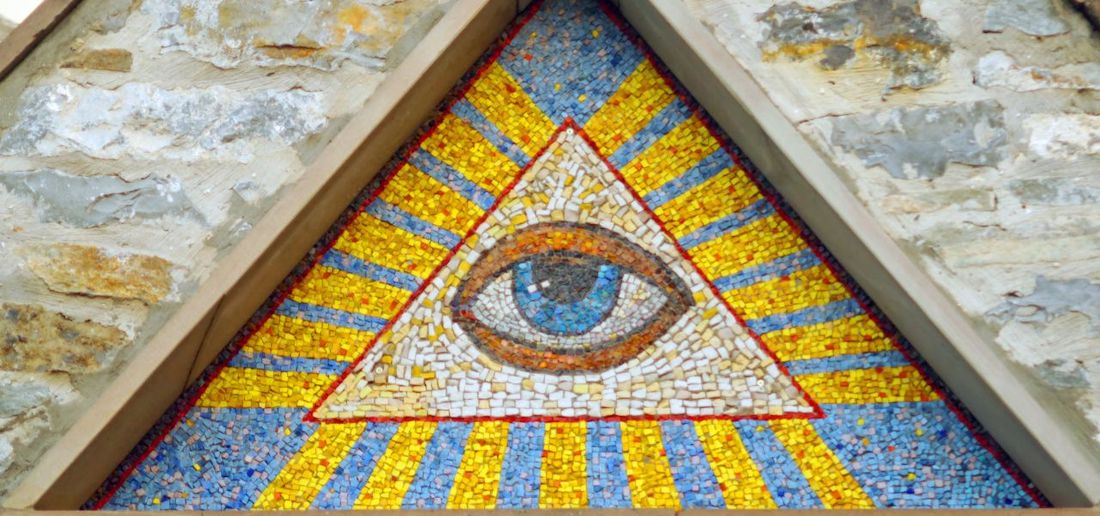Founded centuries ago, Freemasonry is one of the world’s oldest fraternal organizations.
It’s not just a club but a community built on values like integrity, kindness, and respect.
The journey of becoming a Freemason can be transformative, offering personal growth and a deeper understanding of moral and ethical principles.
Freemasonry looks for applicants who embody a strong moral character, a belief in a Supreme Being, and a genuine desire to contribute to society.
They value individuals who seek knowledge and are determined to improve themselves as well as their communities
Prospective members must be of legal age, capable of supporting their families, and must join out of their own free will, with no mercenary motives.
To join, one must be recommended by two existing Freemasons and go through an application process that includes an interview to understand their reasons for joining.
The process ensures that new members align with the fraternity’s values and are committed to its teachings.
TLDR/Key Takeaways
- Freemasonry values integrity, kindness, and respect.
- Applicants need a strong moral character and belief in a Supreme Being.
- The application process includes a recommendation from current members and an interview.

An Overview of Freemasonry
Freemasonry, often called Masonry, is a fraternal organization with deep historical roots.
Its members practice a range of rituals and hold principles and values that have remained core to the group.
Definition and Origins
Freemasonry is a fraternal organization that brings together men of diverse backgrounds who believe in the fatherhood of God and the brotherhood of mankind. It has its origins in the medieval stonemason guilds of Europe.
These guilds were responsible for building castles and cathedrals during the medieval period.
Over time, these operative masons started taking in non-working or “speculative” members, leading to the modern form of Freemasonry known today.
The group emphasizes secrecy and tradition, with various degrees or levels that members can achieve through different rituals.
They often meet in lodges, which are local groups that organize activities and govern themselves.
Core Principles and Values
Freemasonry values moral and ethical teachings and aims to improve its members’ character.
Members must have a belief in a supreme being, though the organization is not tied to any particular religion.
Its core principles include charity, truth, and brotherly love.
Freemasons engage in charitable activities and community service to support those in need. They also focus on self-improvement and personal growth, emphasizing integrity and honesty.
Members use symbols and allegories drawn from stonemasonry to convey deeper moral lessons. These traditions help to solidify the sense of fraternity and shared purpose among its members.
To adhere to these principles, each member must undertake certain obligations and oaths, reinforcing their commitment to the group’s values.
General Requirements for Applicants
Freemasonry seeks specific qualifications and qualities in new members. These include meeting certain age and residency criteria and demonstrating important personal values.
Basic Criteria
Applicants must be at least 18 years old and believe in a Supreme Being.
They need to reside in Massachusetts for at least six months.
It is essential to join out of one’s own free will. Participation should be a personal choice, not influenced by external factors.
A criminal background check may be required. The applicant handles this, and the results are shared with the investigative committee.
Freemasons expect members to be of good character and reputation.
Personal Attributes
Masons look for individuals with integrity and moral standards.
New members should be able to support themselves and their families.
Applicants must be willing to engage in self-improvement and personal growth. Freemasonry values men who are committed to these principles.
Additionally, recommendations from two current Freemasons are often needed. This helps ensure the applicant aligns with the values of the lodge.
Freemasons emphasize that new members should join without any mercenary motives.
It’s crucial that they are driven by a genuine interest in the fraternity’s goals and values.

Specific Qualities Freemasonry Looks For
Freemasonry seeks individuals who are dedicated to personal growth, active in their communities, and aligned with Masonic principles.
These qualities ensure that members contribute positively to the fraternity and their wider communities.
Commitment to Personal Growth
Freemasonry highly values individuals who are committed to improving themselves.
This means embracing lifelong learning, whether through education, skills development, or personal reflection.
A person interested in becoming a Freemason should show a strong desire to better themselves. This can be seen through continuous learning and personal achievements.
Self-improvement is more than just academic success. It can also include physical fitness, mental health, and developing good habits. Someone who strives to be better every day fits well within the Masonic tradition.
Community Involvement
Freemasons look for individuals who actively participate in their communities.
This involvement can come through volunteer work, local organizations, or other community service activities.
A key part of being a Freemason is giving back.
Applicants should have a history of helping others and working towards the common good.
Community involvement shows a willingness to serve and make a positive impact. Whether it’s supporting local charities or participating in community events, being active in the community is essential.
Compatibility with Masonic Values
Applicants must align with core Masonic values such as brotherly love, relief, and truth.
These values form the foundation of Freemasonry and guide the behavior of its members.
- Brotherly love emphasizes kindness and support among members.
- Relief focuses on charity and aiding those in need.
- Truth is about honesty and integrity in one’s actions.
A potential Freemason should demonstrate these values in their daily life.
They should be respectful, charitable, and truthful. Aligning with these principles ensures they will uphold the ethos of Freemasonry.
The Application Process
Applying to become a Freemason involves multiple steps.
Starting with initial inquiries and meetings, moving on to a formal application, and culminating in an evaluation by the lodge members.
Initial Steps
The initial phase often starts with an interested individual reaching out to a local lodge.
Typically, potential applicants must be males at least 18 years of age (though some jurisdictions require a minimum age of 21).
They must believe in a Supreme Being and possess good moral character.
Initial contact usually involves informal meetings where the individual learns more about Freemasonry and meets members of the lodge.
These meetings help both parties determine if there is a mutual fit and underlying interest.
Formal Application
Once initial mutual interest is established, the next step is submitting a formal application.
This includes providing personal details such as age, religious beliefs, and references from current or former Freemasons who can vouch for the applicant’s character.
Different lodges may have unique requirements, but many also request a fee for processing the application and related paperwork, which can range from $20-$50.
Additionally, some lodges ask for a record of the applicant’s residence history and family background to ensure a comprehensive understanding of the individual’s background.
Evaluation by the Lodge
After the formal application is submitted, the lodge conducts an in-depth evaluation.
This step typically involves interviews with lodge members who assess the applicant’s motives, character, and suitability.
The evaluation may also include background checks and other forms of vetting.
It’s not uncommon for lodges to require applicants to be recommended by at least two current members, as having endorsements can significantly impact the decision-making process.
Once all evaluations are complete and if the applicant is deemed fit, they are invited to join and pay an initiation fee, which usually ranges from $100-$200.
Some Common Misconceptions

Many myths surround Freemasonry, creating misunderstandings about its principles and practices. Here’s a closer look at common misconceptions and the truths behind them.
Clarifying Myths and Realities
Secrecy and Conspiracies: One prevalent myth is that Freemasonry is a secret society involved in conspiracies. While it does have private rituals and symbols, these are meant to signify membership, not to hide any malevolent activities. The organization focuses on personal development and community service.
Freemasonry and Religion: Another misconception is that Freemasonry is a religion. Freemasonry is a fraternity that welcomes individuals from various religious backgrounds who believe in a Supreme Being. It does not endorse or practice religious doctrines, nor does it interfere with members’ personal faiths.
Political Involvement: Some believe that Freemasonry engages in political activities to influence government decisions. This is not true. Freemasonry is non-political and promotes good citizenship, but it doesn’t participate in political affairs.
Rituals and Ceremonies: The secretive nature of Masonic rituals often leads to suspicions. These rituals are symbolic acts meant to impart moral and ethical lessons. They are private, but this privacy does not imply anything sinister.
Membership Requirements: Lastly, there’s confusion about who can join. Freemasonry is open to men of good character. Women and certain religions have their own Masonic organizations. Belief in a Supreme Being and a commitment to ethical living is crucial for membership.
Resources for Interested Applicants
Those looking to join Freemasonry have various resources available to help them better understand the organization.
From reading materials to online communities, local lodges, and videos, there are plenty of ways to learn more.
Recommended Reading
Books are a great way to start learning about Freemasonry.
One recommended book is “Freemasons for Dummies” by Christopher Hodapp. It’s written in an easy-to-understand style and covers the basics.
Another valuable resource is “The Complete Idiot’s Guide to Freemasonry” by S. Brent Morris. This book provides a balanced view and clears up common misconceptions.
Online Communities and Forums
Online forums can be very helpful for prospective members. The Freemasonry subreddit is a good place to start. Its discussions range from beginner questions to more advanced topics.
Other forums like the Freemasons Community offer a space for members and those interested in joining to ask questions and participate in conversations.
Social media groups on platforms like Facebook and LinkedIn also provide helpful discussions and connections with current Freemasons.
Engaging in these communities lets users ask questions and get advice from experienced members.
We even have an AI Masonic mentor you can ask questions to.
Local Lodges
Visiting local lodges is one of the most direct ways to get information.
Many lodges hold open houses or information nights where prospective members can meet and talk with current members.
A local lodge can also provide details about its own application process and requirements.
YouTube Videos and Documentaries
YouTube offers a wealth of videos on Freemasonry. Channels like The Masonic Roundtable and Whence Came You? discuss various topics related to Freemasonry, making it accessible for those who prefer watching over reading.
Documentaries such as “The Freemasons: Secrets of the Masons” provide deeper insights into the fraternity’s history and practices. These videos can be found on streaming platforms or sometimes on DVD.
Watching these videos and documentaries offers a visual and often more engaging way to learn about Freemasonry. They can be helpful for those who want to see real-life examples of Masonic traditions and hear from actual members.
Summary of Key Points
Freemasons value ethical behavior and morality in their members. This means living by principles such as honesty, integrity, and respect for others. Applicants are also expected to engage in charitable actions, helping those in need and contributing positively to their communities. Freemasonry involves personal development through self-reflection and introspection. This journey aims to build leaders who embody the values and principles taught by the organization.
Freemasonry offers a sense of belonging and camaraderie among its members.
It’s not just about rituals, but also about forming lasting bonds and friendships.
The organization provides many opportunities for personal and professional growth. Freemasonry’s structured approach to teaching its values ensures that members become well-rounded individuals.
The emphasis on charity and community service highlights the organization’s commitment to making a positive impact on society.